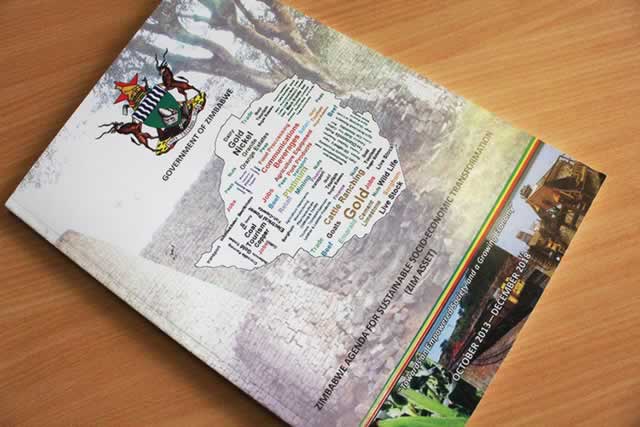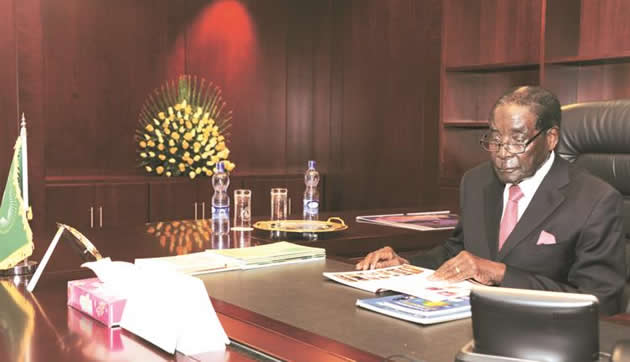Zim-Asset: Appropriate messaging is critical


The Zimbabwe Agenda for Sustainable Socio-Economic Transformation is certainly a brilliant document but it will amount to nothing unless we seek the face of God as a country
Simukai Tinhu Correspondent
THE triumphant Zanu-PF Government used the 2013 electoral victory as a mandate to institute the Zimbabwe Agenda for Sustainable Socio-Economic Transformation (Zim-Asset), an economic strategy whose special emphasis on indigenisation is not only meant to ensure growth, but also to overhaul the
rules of the economic game in Zimbabwe.
Such ambitious public policies always come with big expectations.
As a result, Government should ensure that various stakeholders such as the business community, investors and the public in general, understand, and more importantly, embrace the policy.
Failure to be inclusive, especially at the implementation stage, can invite stakeholder derision and even efforts to undermine it.
To date, it appears Government has made little efforts to invite others to take part in the implementation of the economic strategy.
Indeed, it is not an exaggeration to say at the moment, with regards to support of the Zim-Asset, Government is a lone ranger as it stands on its own in the implementation of this ambitious policy.
The opposition, civic community, student organisations, most of the private sector, international organisations, Western governments and the public in general are not only peripheral players at best, but are also pessimistic about the prospects of Zim-Asset turning around the economy.
The uncoordinated response to the plan may point to the fact of failure to command cross-sector consensus and rallying support for Zim-Asset as an economic policy.
But such a scenario is not anomalous. Mega projects easily scare people because of the tremendous amount of uncertainty associated with large scale policies. In the case of Zim-Asset, Government has not helped its case by devoting little resources to selling the economic strategy to the nation’s various constituencies.
Trust in the ability of Zim-Asset to achieve its stated goals, in particular, economic growth, is lowest among the public.
The economic strategy excites minimal optimism among the general public, with many myths abounding on how Zim-Asset was conceived.
Some have feared that though launched one and a half years ago, the economic strategy doesn’t appear to be resolving the “real” problems facing the nation — the economy in recession and unemployment.
Unless such fears are assuaged soon enough, opposition may have some lethal arguments come 2018 elections.
But it is in the area of messaging that Zim-Asset is found wanting.
Some may find Zim-Asset inaccessible and the public sees the economic strategy as an ubertechnocratic mega-project designed by elites insulated from the common man’s reality.
One way of educating the public about the policy is by holding low level workshops within communities.
Also a simple, easy to understand manual articulating what Zim-Asset is and what the role of the public in its implementation has to be produced.
Aggressive public education not only makes it easy for Government to incorporate the ideas of the public in general, but lends public support to the economic blue-print, thereby neutralising unnecessary criticism which can often act as a distraction in implementing Zim-Asset.
Managing transparency with the public is also crucial in gaining the support of the public. The sceptical public believes that there should be a public debate and open discussion about how the strategy is being implemented.
Also, persistent questions and negative statements from non-partisan experts further erode the existing minority public support that Zim-Asset might have. Scepticism, uncertainty and anxiety continue in the eyes of expert stakeholders, independent economists, and the majority of the business community.
Experts are influential stakeholders, and Government should periodically review Zim-Asset in order to include, particularly, those experts whose views are compatible with the economic policy. These progressive experts’ views can then be used as the cutting edge to win those within their community who are still sceptical about the policy.
The most effective way to incorporate the views of the experts and other influential stakeholders such as the business community is to create a meta-organisation that is responsible for bringing consensus.
Such a move will dispel the current perception that Government’s lone approach to the implementation is a display of arrogance of power.
The Zim-Asset is not only taking a beating in the public and private sector courts, but also in the international community whose funding is indispensable to the successful implementation of the policy.
In particular, despite diplomatic utterances the West in general has taken a cool view of Zim-Asset and evidence it is conceivable that it has been perceived as a product not sellable to investors.
Despite this setback, winning the hearts and minds of the international community is still crucial in order to access finances.
In this respect, only those accomplished professionals within Government ministries, and those who possess outstanding qualifications, and have the ability articulate the economic strategy should be assigned the role of persuading the international community on the merits of the economic strategy.
Equally, the opposition’s hostility to the economic strategy has been unequivocal. They see Zim-Asset as a mess, which as opposition is an understandable stance. To them, the only option is to replace Zim-Asset with something else.
As a result, they have devised simple but effective ways to sabotage the economic strategy, from simple criticism to dissuading the international community from attempting to invest in the Zim-Asset.
Government’s view that the opposition’s hostility to Zim-Asset is here to stay and, therefore, they should do little to invite their input is unproductive.
Indeed, to Government officials, no amount of rose-coloured optics or new messaging will soften the opposition.
However, in order to co-opt progressive elements within the opposition and civic community, Government should attempt to frame the policy as mainstream, rather than extreme or hard-line strategy that can only benefit those who support it.
Government must emphasise common ground and Zim-Asset’s near universal values.
President Mugabe’s message has been instructive on this matter with his emphasis that the Zim-Asset is designed to benefit all Zimbabweans.
Also, simple modifications to the strategy using majority reconciliation process might win some support of the opposition.
Our politicians need to remind themselves that there is price to be paid if they do not attempt to co-opt other stakeholders in the implementation of Zim-Asset.
The consequences of ignoring public opinion, in particular, are the public opinion’s long memory, which can hold politicians to account come the ballot box in 2018 elections.
- Simukai Tinhu is a researcher and political analyst.







Comments